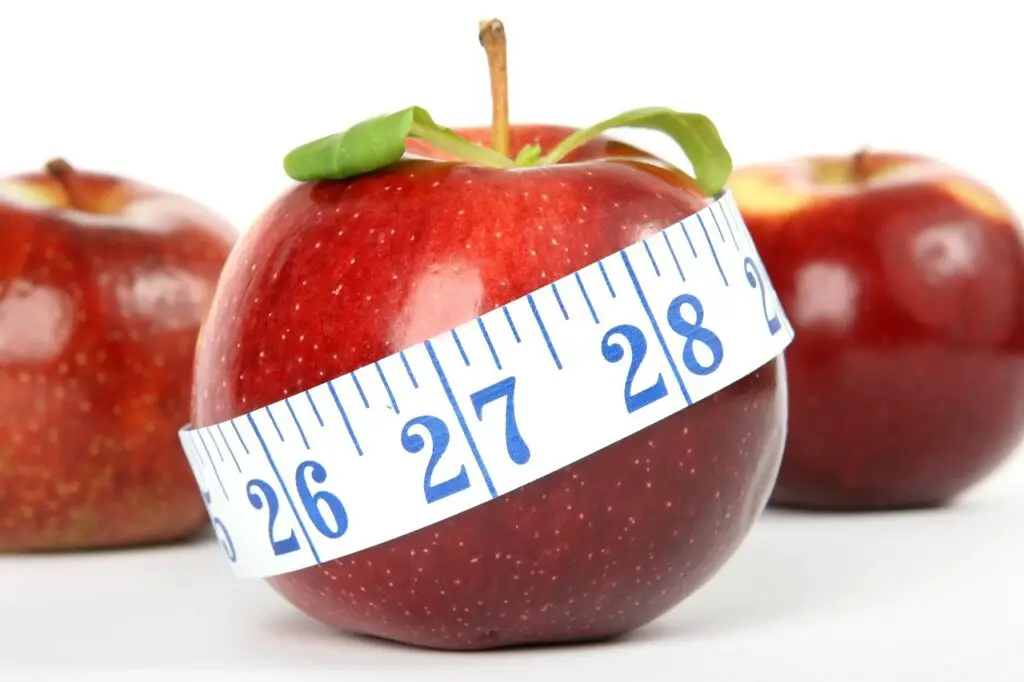The popularity of plant-based diets has been on the rise in recent years. This can be attributed to a growing awareness of the health benefits of such diets, as well as an increased concern for the environmental impact of animal agriculture. Many people are turning to plant-based diets as a way to improve their health and reduce their carbon footprint.
There are different types of plant-based diets, such as vegan and vegetarian, each with its own set of guidelines and rules. Veganism is a lifestyle that seeks to eliminate the use of animal products altogether, while vegetarianism allows for the consumption of dairy and eggs.
The interest in plant-based diets have been increased over the time, many people are more conscious about their health, and the impact of their food choices on the environment, and many people adopt it for those reasons, and it has been increasingly recognized for its health benefits, including reducing the risk of chronic diseases, improved cardiovascular health, weight loss, increased nutrient intake and have a positive impact on the environment.
In this blog post, we will explore the benefits of plant-based diets, as well as tips for incorporating more plant-based foods into your diet. We will also address common misconceptions about plant-based diets and provide additional resources for those interested in learning more.
what is plant based food?
Plant-based food is any food derived from plants, such as fruits, vegetables, grains, legumes, nuts, and seeds. A plant-based diet is one that primarily consists of these foods, with minimal or no intake of animal products. It has been recognized for its health benefits and have a positive impact on the environment. It is becoming increasingly popular as people are more conscious about their health and the impact of their food choices on the environment.
The Health Benefits of Plant-Based Diets

One of the main reasons why people choose to adopt a plant-based diet is the numerous health benefits it provides. These benefits include:
1. Reduced risk of chronic diseases: Plant-based diets have been linked to a reduced risk of chronic diseases such as heart disease, type 2 diabetes, and certain cancers. This is likely due to the high intake of fiber, antioxidants, and phytochemicals found in plant-based foods, which protect against these conditions.
2. Improved cardiovascular health: Plant-based diets have been shown to lower cholesterol levels, blood pressure, and inflammation, all of which are major risk factors for heart disease. They also tend to be low in saturated fat and cholesterol, which further improves cardiovascular health.
3. Weight loss: Plant-based diets have been shown to aid in weight loss by helping to control calorie intake, as they are typically lower in calories and fat than diets that include animal products.
4. Increased nutrient intake: Plant-based diets tend to be high in essential vitamins, minerals, and other nutrients such as vitamin C, vitamin E, potassium, and magnesium.
5. Positive impact on the environment: Plant-based diets have a much lower environmental impact than diets that include meat and other animal products. They require less land, water, and energy to produce, and do not contribute to pollution and deforestation in the way that animal agriculture does.
It is important to note that not all plant based diets are created equal, and some may lack in some essential nutrients, so it’s important to plan the diet well, and to understand which food sources provides the essential nutrient in case of avoiding any deficiencies.
Understanding Plant-Based Diets

When it comes to plant-based diets, there are several different types, each with their own set of guidelines and rules. Some of the most common types include:
1. Vegan: A vegan diet is one that eliminates all animal products, including meat, dairy, eggs, and honey. It is the most restrictive plant-based diet and is based on the principle of animal rights.
2. Vegetarian: A vegetarian diet is one that eliminates meat, poultry, and fish, but allows for the consumption of dairy and eggs. It is less restrictive than a vegan diet.
3. Flexitarian: A flexitarian diet is one that primarily consists of plant-based foods but allows for occasional meat consumption. This type of diet is often chosen for health or environmental reasons.
4. Pescatarian: A pescatarian diet is one that eliminates meat and poultry, but allows for the consumption of fish.
It is important to note that plant-based and veganism are not exactly the same, as veganism is a lifestyle choice which includes also ethical and environmental reasons, and goes beyond the food choices. While a plant-based diet is mostly a dietary choice which is based on the health, environmental or any other personal reasons.
Meeting nutrient needs on a plant-based diet can be a concern for many people. It is important to plan your meals and snacks to include a variety of nutrient-dense plant foods such as whole grains, legumes, fruits, vegetables, nuts, and seeds. Some nutrients that can be harder to find in a plant-based diet are B12 and Omega-3 fatty acids.
These can be supplemented or consumed from fortified food source. A multivitamin, a vitamin B12 supplement, and an Omega-3 supplement can be considered for those who adopt a plant-based diet.
It is always important to seek professional advice from a registered dietitian or a doctor before making any drastic changes to your diet and to have a good understanding of the nutrients needs, and how to fulfill them through the diet, and supplements if needed.
How to Incorporate More Plant-Based Foods into Your Diet

Incorporating more plant-based foods into your diet can have numerous health benefits, including reducing your risk of chronic diseases, such as heart disease and certain types of cancer, as well as helping with weight management. Additionally, eating more plant-based foods can be more environmentally sustainable. If you’re looking to add more plant-based options to your diet, here are some tips to help you get started.
Meal Planning and Preparation Tips:
- Make a list of your favorite plant-based foods, such as fruits, vegetables, whole grains, nuts, seeds, and legumes. Keep this list handy when planning your meals and shopping for groceries.
- Experiment with different types of plant-based proteins, such as tofu, tempeh, lentils, and beans. Try different preparation methods, such as grilling, sautéing, roasting, and stewing, to find which you prefer.
- Keep a stock of frozen fruits and vegetables on hand. Frozen fruits and vegetables are just as nutritious as fresh and can be a convenient option when fresh produce is not available.
- Incorporate more plant-based options in your meals. For example, swap out meat for beans in your chili or opt for a vegetable stir-fry instead of a meat-based one.
- Make it a goal to eat at least one plant-based meal per day. This could be a salad for lunch or a veggie-packed stir-fry for dinner.
Shopping for Plant-Based Foods:
- When shopping for plant-based foods, focus on whole, unprocessed options. These include fruits, vegetables, whole grains, nuts, seeds, and legumes.
- Shop the perimeter of the grocery store, where the fresh produce, meat alternatives, and dairy-free milk are typically found.
- Make a list of ingredients you need for the week and stick to it as much as possible to avoid impulse buying.
- Try to buy in-season produce when possible. Not only is it fresher and more flavorful, but it’s often less expensive.
- Check out farmers markets, co-op, or online shops for the fresher options.
Eating Out at Restaurants:
- More and more restaurants are offering plant-based options, so don’t be afraid to ask your server for recommendations.
- If the restaurant doesn’t have any plant-based options, ask if they can make you a dish without meat or dairy. Many restaurants are willing to accommodate special requests.
- You can also opt for places with a menu that caters to your preferences, such as vegan or vegetarian restaurants.
- Do your research ahead of time by checking out the menu online, so you know what to expect when you arrive.
Recipes and Meal Ideas:
- Start with a simple dish that you’re already familiar with, such as a salad or a stir-fry, and switch out the meat for plant-based options like beans, lentils, or tofu.
- Look for plant-based versions of your favorite comfort foods, like lasagna, burgers, and macaroni and cheese.
- Try a new recipe each week that features a new plant-based ingredient or preparation method.
- Experiment with different types of cuisines, like Indian, Thai, or Ethiopian, which often have a lot of naturally plant-based dishes.
Incorporating more plant-based foods into your diet can have many benefits for your health, your community, and the planet, and it doesn’t have to be complicated. With a little bit of planning and creativity, you can easily incorporate more plant-based foods into your diet.
Common Misconceptions about Plant-Based Diets

Plant-based diets, which are centered around whole, unprocessed plant foods like fruits, vegetables, whole grains, nuts, seeds, and legumes, have been gaining popularity in recent years due to their numerous health benefits. However, with the rise of plant-based diets, there have also been a number of misconceptions and myths circulating about these diets. In this blog post, we will address some of the most common misconceptions about plant-based diets and provide accurate information to help clear up any confusion.
Misconception #1: Plant-based diets are lacking in protein:
One of the most common misconceptions about plant-based diets is that they are lacking in protein. However, this is simply not true. Plant-based protein sources include beans, lentils, tofu, tempeh, seitan, and quinoa, among others. These foods, when combined in a balanced diet, can provide all of the essential amino acids needed for a healthy diet. Additionally, consuming a variety of different plant-based protein sources can help ensure that you are getting all the essential amino acids your body needs.
Misconception #2: Plant-based diets lead to nutrient deficiencies:
Another common misconception is that plant-based diets lead to nutrient deficiencies. However, a well-planned plant-based diet can provide all the necessary vitamins and minerals for a healthy diet. Plant-based diets are typically high in vitamins, minerals, and phytochemicals that are important for optimal health. It is important to eat a varied diet, ensure to include a wide range of fruits, vegetables, whole grains, legumes, nuts, and seeds. They can make sure you are getting a good balance of nutrients. Consulting with a registered dietitian or nutritionist may also be beneficial for ensuring that your diet is nutritionally adequate.
Misconception #3: Plant-based diets are expensive:
Another common misconception is that plant-based diets are more expensive than diets that include meat. However, this is not necessarily the case. Whole foods like fruits, vegetables, whole grains, legumes, and nuts are often less expensive than meat and can be purchased in bulk for even greater savings. Additionally, buying produce in season, shopping at farmers markets, and buying from bulk bins can also help keep costs down.
Misconception #4: Plant-based foods are hard to find
It’s not true, plant-based foods are more readily available than ever before. Many supermarkets now carry a wide variety of plant-based foods and meat alternatives, and more and more restaurants are offering plant-based options on their menus. Online grocery shopping and home delivery options also make it more convenient to get your hands on plant-based products.
Incorporating a plant-based diet can have numerous health benefits, and it’s not as hard as people think. Plant-based diets can provide all the necessary nutrients for a healthy diet and are not lacking in protein. Plant-based diets can be affordable, and the foods are becoming more readily available.
Conclusion
plant-based diets, which are centered around whole, unprocessed plant foods, have been proven to have numerous health benefits, such as reducing the risk of chronic diseases, improving weight management, and promoting environmental sustainability. These benefits come from the nutrient-rich profile of plant-based foods, which are low in saturated fat and high in fiber, vitamins, and minerals. Furthermore, plant-based diets are affordable and more readily available than ever before.
We encourage you to give plant-based eating a try, whether it be by incorporating more plant-based options into your current diet or by fully committing to a plant-based diet. Remember that it’s not a one-size-fits-all and you can adapt it to your own needs and preferences. Keep in mind that it’s important to consult with a registered dietitian or nutritionist to ensure that your diet is nutritionally adequate.
More Info
Eating a plant-based diet is not only good for our health, but it’s also good for the environment. Plant-based foods require less water and land to produce, and they generate fewer greenhouse gas emissions than animal-based foods. Here are three websites that can help you learn more about plant-based eating and find delicious recipes:
- Forks Over Knives – https://www.forksoverknives.com/ Forks Over Knives is a website and a movement that promotes a whole-food, plant-based diet as a way to prevent and reverse chronic diseases. They have a wide variety of recipes, cooking videos, and meal plans to help you transition to a plant-based diet.
- HappyCow – https://www.happycow.net/ HappyCow is a website that helps you find vegetarian and vegan restaurants and health food stores around the world. It’s a great resource for plant-based travelers, or for those looking for new plant-based options in their own city. They also have a section of plant-based recipes on the website.
- Veganuary – https://veganuary.com/ Veganuary is a non-profit organization that encourages people to try a vegan diet for the month of January, and provides resources and support to help make the transition as easy as possible. They have a variety of resources on their website, including recipes, meal plans, and nutrition advice.
These websites are great resources for anyone looking to incorporate more plant-based foods into their diet. They offer a wide range of recipes, cooking videos, and meal plans, making it easy to find delicious, healthy, and sustainable plant-based options.




